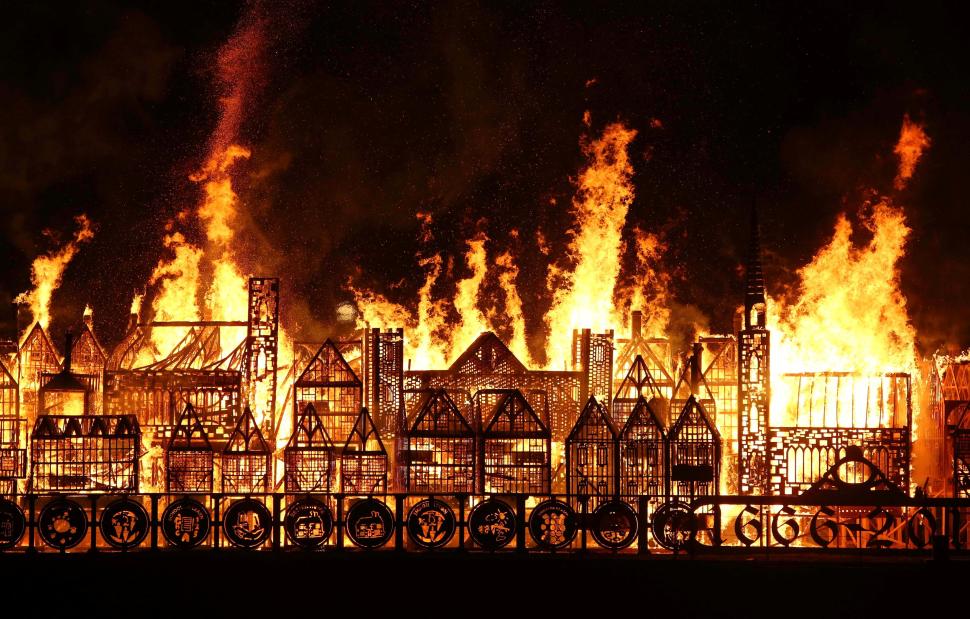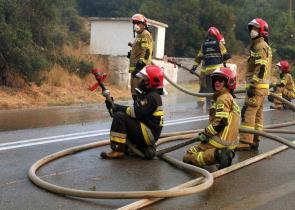Our country was recently faced with the natural disaster Daniel, which hit other countries in addition to Greece.
On the occasion of the biblical disasters Daniel left behind also a great concern of the country and those affected for the "next day". Now it is worth going through history and remembering how events of such scope shaped the life of humanity
Throughout history, humanity has faced many major disasters, natural or man-made, that have had profound and far-reaching effects on our societies, cultures and ways of life.
These disasters have often catalyzed significant changes in various aspects of human existence. Let's explore some notable examples:
The Black Death (1347-1351):
- Devastation: The Black Death was a devastating pandemic caused by the bacterium Yersinia pestis that swept through Europe, Asia and Africa. It is estimated to have killed between 75 and 200 million people.
- Changes: This disaster had a profound impact on medieval Europe. It led to a severe desertification of the continent, which, paradoxically, led to an increase in wages for workers and a shift towards more urbanisation. The lack of labor also contributed to the decline of the feudal system and spurred advances in medicine and public health.
The Great Fire of London (1666):
- Devastation: This was a major urban fire that swept through London, destroying a significant portion of the city. It began on September 2, 1666, and continued for three days.
- Changes: The Great Fire of London led to significant urban planning changes in the city. London was rebuilt with wider streets, more organized urban planning and buildings made of brick and stone to reduce the risk of future fires. These changes set the stage for modern urban development.
Second World War (1939-1945):
- Destruction: World War II was a global conflict that resulted in the loss of approximately 70-85 million lives and widespread destruction. It included the Holocaust, the use of atomic bombs on Hiroshima and Nagasaki, and countless battles across Europe, Asia, and the Pacific.
- Changes: World War II had profound and lasting effects on geopolitics. It led to the founding of the United Nations, the start of the Cold War, and the eventual decolonization of many nations. Economically, it spurred post-war recovery and the growth of the middle class in several countries. She also played a central role in the civil rights movement and the promotion of women's rights.
The COVID-19 pandemic (2019-present):
• Disaster: The COVID-19 pandemic is an ongoing global health crisis caused by the novel coronavirus SARS-CoV-2. It has led to millions of deaths and significant disruptions to daily life.
• Changes: The pandemic has accelerated digital transformation, remote work and telemedicine. He also underlined the importance of public health infrastructure and scientific cooperation. Governments have implemented various policies to control the spread of the virus, which have raised questions about civil liberties and individual rights.
In each of these cases, major disasters forced societies to adapt, innovate and evolve. Whether through changes in governance, urban planning, technology or social norms, humanity has consistently demonstrated resilience and the ability to bounce back from even the most catastrophic events. These historical examples remind us of the capacity to grow and transform even in the face of adversity.
Greece, with its diverse ecosystems and picturesque landscapes, has experienced a long history of environmental disasters caused by the forces of nature. These natural disasters, including fires, droughts, earthquakes and floods, have not only posed immediate threats, but have also left a lasting imprint on the lives of the Greek people. This article explores the environmental disasters in Greek history, their profound consequences and the resulting changes in the way society interacts with its natural environment.
In ancient Greece, where communities were closely intertwined with nature, environmental disasters were a recurring challenge. Earthquakes, for example, were often attributed to the wrath of the gods, and rituals and sacrifices were performed to appease them. These disasters, while devastating, also played a role in shaping the religious and philosophical thought of the time.
Throughout history, Greece has experienced periods of drought and flood, which have had significant effects on agriculture, a pillar of the Greek economy. Droughts could lead to crop failure and food shortages, while excessive rainfall and floods could destroy entire crops. In response, the Greeks developed irrigation systems and reservoirs to mitigate the effects of these environmental fluctuations.
As Greece moved through the Byzantine and Ottoman eras, environmental disasters remained a part of everyday life. Notable earthquakes, such as the Elassona earthquake of 1759, caused widespread destruction. However, both empires implemented innovative water management systems, including aqueducts and reservoirs, to deal with drought and ensure a steady water supply.
The emergence of modern Greece in the 19th century brought opportunities and challenges in dealing with environmental disasters. The earthquake of 1822 in Chios and the subsequent reaction of the reconstruction of the island highlighted the resilience of the Greek people in the face of natural adversities.
In modern Greece, fires have emerged as a pressing environmental issue. Climate change, combined with human activities, has increased the frequency and intensity of wildfires, especially during hot and dry summers. The devastating wildfires of 2007 and 2018, which claimed lives and destroyed homes and natural habitats, led to a renewed focus on fire prevention and management.
Flooding is also a recurring threat, with the 2017 flash floods in Mandra and Nea Peramos a reminder of the vulnerability of Greek communities to heavy rainfall. These events prompted investment in improved drainage systems and early warning mechanisms to protect animals and property.
Throughout its history, Greece has faced a wide range of environmental disasters, each of which leaves an indelible mark on its society. These challenges have catalyzed innovation, resilience and adaptation. Today, modern Greece is at the forefront of addressing contemporary environmental issues, from fire prevention and management to sustainable agriculture and water management.
The fury of nature has repeatedly tested the strength of the Greek people, forcing them to adapt and evolve in response to the changing environment. As Greece continues to grapple with the consequences of climate change, these historical lessons remind us of the enduring human spirit and ability to turn adversity into opportunities for positive change.
And it also reminds us that the human species has survived over the centuries by adapting to change and will continue to change and survive.
Mitsotakis briefed about developments in affected areas and recovery efforts
Concern and 112 message over rising water levels at Lake Karla in flood-stricken Magnesia
Ακολουθήστε το Lykavitos.gr στο Google News
και μάθετε πρώτοι όλες τις ειδήσεις



